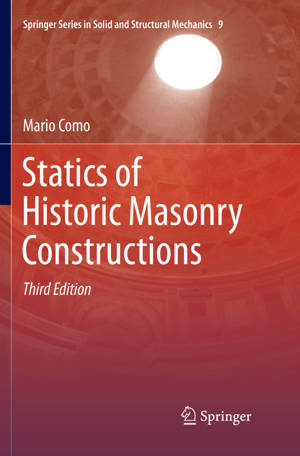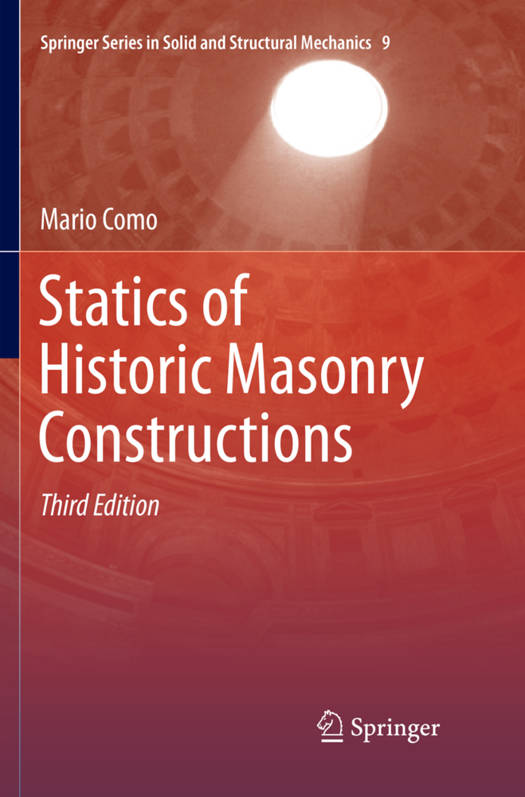
- Retrait gratuit dans votre magasin Club
- 7.000.000 titres dans notre catalogue
- Payer en toute sécurité
- Toujours un magasin près de chez vous
- Retrait gratuit dans votre magasin Club
- 7.000.0000 titres dans notre catalogue
- Payer en toute sécurité
- Toujours un magasin près de chez vous
Description
Masonry constructions are the great majority of the buildings in Europe's historic centres and the most important monuments of its architectural heritage. Given the age of these constructions, the demand for safety assessments and restoration projects is pressing and constant; still within the broad studies in the subject it is not yet recognised, in particular within the seismic area, a unitary approach to deal with Masonry structures. This successful book contributes to clarify the issues with a rigorous approach offering a comprehensive new Statics of Masonry Constructions.
This third edition has been driven by some recent developments of the research in the field, and it gives the fundamentals of Statics with an original and rigorous mathematical formulation, further in-depth inquired in this new version. With many refinements and improvements, the book investigates the static behaviour of many historic monuments, such as the Gothic Cathedrals, the Mycenaean Tholoi, the Pantheon, the Colosseum, the domes of Santa Maria del Fiore in Florence and St Peter's in Rome, as well as the Leaning Tower of Pisa.
The last chapter - the 11th - regarding the behaviour of masonry buildings under seismic actions, has been modified and integrated in order to take into account the numerous recent achievements of the research in the dynamic and seismic analysis. The focal point is that there's no dissipation of energy during the deformation of masonry structures, even if accompanied by cracks. If properly reinforced, masonry constructions have the sole resource to escape the seismic action developing the rocking without failure, under alternate seismic action. In this context, the rocking of pier walls, the main resistant components of the masonry structure, has been here thoroughly examined. Furthermore, the out of plane and the in-plane seismic strengths of masonry walls with openings has been investigated within the framework of Limit Analysis.
Through an interdisciplinary approach, involving Mathematics, Engineering and Architecture, this book highlights the tight connection existing between the Statics of Masonry constructions and the principles that ruled the history of constructions, since the beginnings as far as the Seventeenth century.
Spécifications
Parties prenantes
- Auteur(s) :
- Editeur:
Contenu
- Nombre de pages :
- 649
- Langue:
- Anglais
- Collection :
- Tome:
- n° 9
Caractéristiques
- EAN:
- 9783319854687
- Date de parution :
- 02-08-18
- Format:
- Livre broché
- Format numérique:
- Trade paperback (VS)
- Dimensions :
- 156 mm x 234 mm
- Poids :
- 925 g

Les avis
Nous publions uniquement les avis qui respectent les conditions requises. Consultez nos conditions pour les avis.






